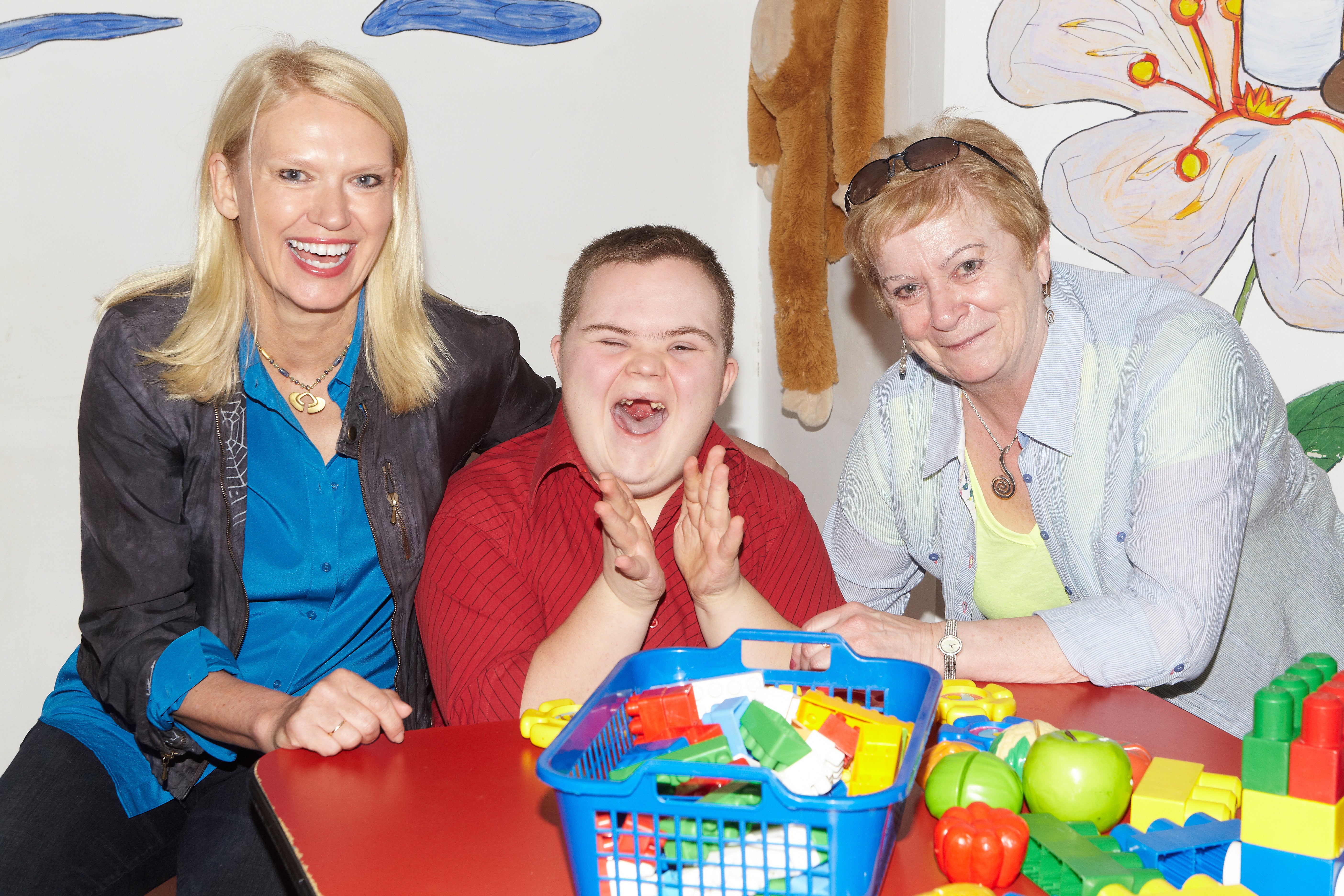Of all the ‘Challenge Anneka’ projects, this is the one I will never forget
When we travelled to Romania to build an orphanage 30 years ago, none of us could have been prepared for what we witnessed, writes Anneka Rice


During lockdown we’ve been turning in on ourselves. It’s been quite the thing in TV-land to take a nostalgic look at past shows to see what happened to the roof extension/puppy/long-lost child/elephant in the 10 years since. There are always lots of old clips: granny wheeled out to say how the terrace has changed her life, how the hedge has grown four inches, how the water feature went wrong but is now working again. Everyone loves these programmes.
So I’m amazed the BBC hasn’t claimed the Challenge Anneka legacy for its own and heralded it from the rooftops. We’ve had the 10th anniversary, the 25th, and now it’s the 30th. Talk about fulfilling all of the BBC’s remits in one fell swoop. Inform! Educate! Entertain! It’s an orgasm of ticks.
We built a suspension bridge once, which linked two communities in Cornwall. We renovated a soup kitchen at St Martin’s-in-the-Fields. At the time, the vicar said, “We’ve seen a kind of miracle here this week.” Thirty years on, that smoky, cosy soup kitchen has evolved into The Connection, a state-of-the-art centre for the homeless. We built a fishing facility and bungalows for wheelchair users. Volunteers still nobly work on these projects and none more so than those involved with the Romania challenge.
Monica McDaid, a schoolteacher in Solihull, innocently wrote to us 30 years ago challenging us to renovate an orphanage in Siret. In 1990, everyone was talking about Romania. The country had recently opened up after the execution of Nicolae Ceausescu and rumours were coming out about a humanitarian crisis. Brits were hiring vans, taking out blankets and clothes and returning with horrific stories of neglected children.
Our orphanage housed 600 children with shaved heads, ages and sex indeterminable, many sexually and physically abused. Babies and toddlers were tied up two or three to a cot, lying in their own faeces. They lay rocking in the dark, in the basement. Ceausescu’s edict for women to produce as many children as possible for his super race had resulted in thousands of unwanted pregnancies.
We took out a plane stuffed with building materials, nappies, cots, doctors, nurses, roofers, electricians and plumbers. It was extraordinary what happened over the next 10 days, as we tried to install lighting, and plumbing – there weren’t loos or showers. Men cried openly; none of us were aid workers and we were out of our depths.
We returned home shell-shocked. What would happen now? Much of my time had been spent negotiating with officials to let us carry on with the work. I felt racked with guilt as I headed home to my own small children.
Our saviour was Monica. She offered to stay on with some of the volunteers. Little did she know then what an impact this decision was to have on her life. She never left. Money poured in. The volunteers kept coming. Doctors went back to perform operations on cleft palates, occupational therapists turned up out of the blue. Our builders started work. The Romanian Challenge Appeal, set up after the programme, raised over £2m.
In 2000, the orphanages were disbanded as Romania tried to join the EU. Children were dispersed, most to live just as grimly in other institutions. Monica’s children were lucky. The charity rescued dozens of children and built seven halfway houses. Volunteers like Sean McMenamin and Rudy Parkes from the West Midlands fire service still finance themselves year after year to come out to help. As have dozens of you. But it is Monica who is the true heroine. She turned her initial fear into a super power. She has been recognised in Romania at the highest level.
When I was last there, two of the orphans, Viorel and Mariana, had got married. Viorel was six on that original challenge. He is now 36 and works in the local wood factory with Mariana. He says he doesn’t look back.
I mention Romania as it’s the project that most people remember. But there are dozens of others. One of my favourite UK projects was the Wormwood Scrubs Pony School, which helps disabled children learn to ride, where we built a huge indoor stadium. The Challenge had everything – a feisty horse-riding nun in charge, prisoners from Wormwood Scrubs who came to help and who had a fine couple of days collecting stashed drugs from behind the hay bales. When I picked them up from prison in my buggy, I shouted over the engine, “What are you in for?” “Murder,” came the reply from the back seat. Sister Mary Joy kept in touch with those prisoners for years. What a thing.
Challenge Anneka had it all. Tragedy, drama, jeopardy, fun. It was such a heady combination that Hollywood came calling. They wanted to make a film about me and the Romania Challenge. In the end, despite trips to LA, I couldn’t stomach being made into a Hollywood heroine. The heroes are Monica, Sister Mary Joy, and the hundreds of others. I salute you all.
‘Help! My Head's in Wookey Hole’ goes out on Radio 4 on Tuesday 15 December at 6.30pm




Join our commenting forum
Join thought-provoking conversations, follow other Independent readers and see their replies
Comments